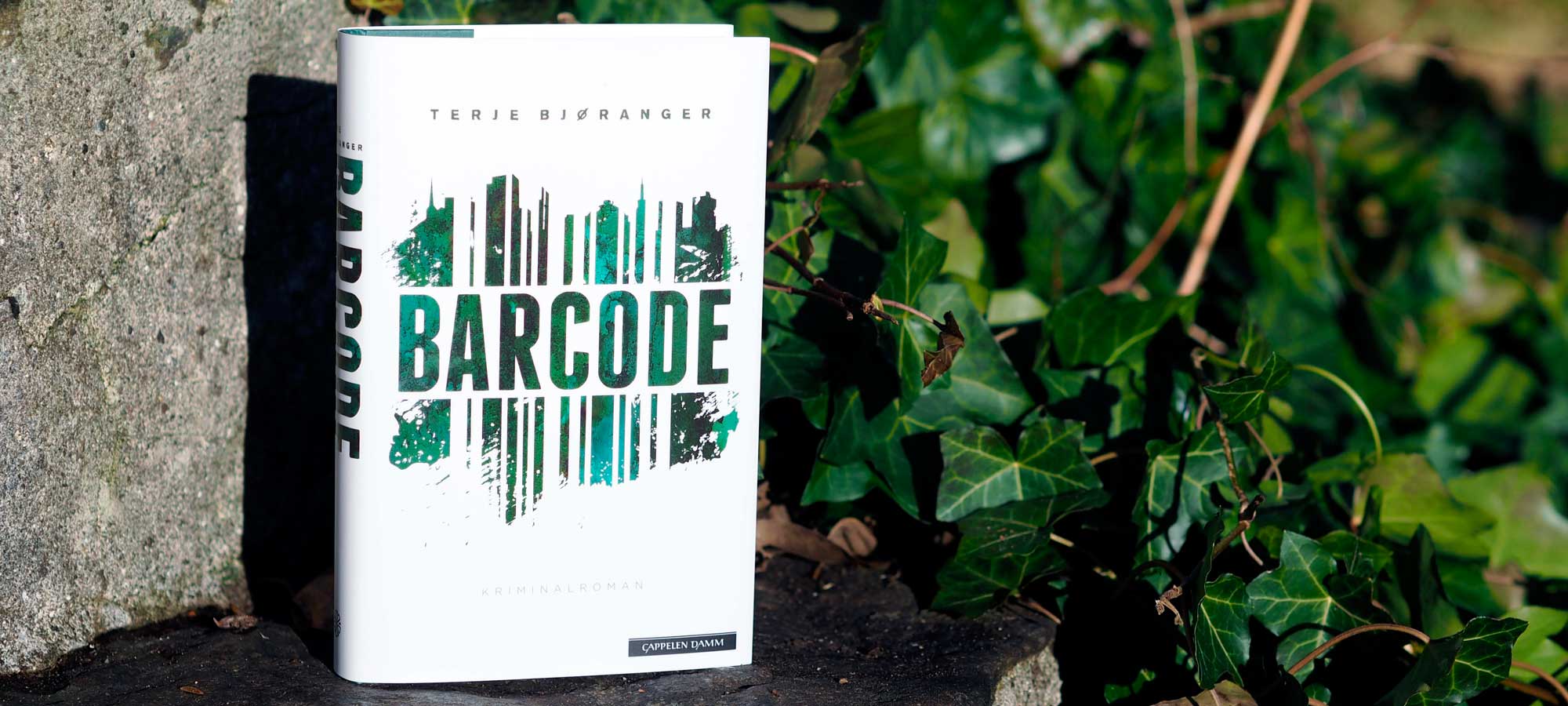
Crime has become rougher, extends across national boundaries and is better organised than before. This calls for entirely new capabilities within the police, says police prosecutor Terje Bjøranger. In his new novel, Barcode, he gives us insight into a fearsome reality.
As a lawyer working within Kripos, the Norwegian National Criminal Investigation Service, Terje Bjøranger has a better overview of organised crime than most. International child abduction and people-smuggling cases are among the problems he deals with every day.
‘I work with international police co-operation, through for example Interpol and Europol. Some of the types of cases I can mention are international child abduction and international pursuit of people who have committed serious crimes.’
When Bjøranger worked in UDI, the Immigration Directorate, he also acted as prosecutor in such cases. These could for example involve people-smuggling, exploitation of illegal workers, use of false documents, false identity, money- laundering and receiving of stolen goods.
Based on real police personnel
This experience is reflected in Bjøranger’s novels. In Barcode, we meet prosecutors who are involved in such cases.
‘The characters, events and problems in Barcode are largely inspired by real life, though not the plot itself. And I must admit that Charlie Robertsen is based on police personnel I have worked closely with.’
Wanting to tell the important stories
Bjøranger has always written, and he wants to tell important stories. His previous novel, The Third Sister, was considered so relevant that it is used for teaching both in the police and in the child protection service.
‘I have had literally hundreds of rather detailed conversations with girls in the main character’s situation, exposed to forced marriage, death threats, violence or other honour-related reprisals. It’s important to tell these stories.’
Now Bjøranger hopes that his new novel will open further windows for the readers. He wants to show us a reality we otherwise wouldn’t know about. That’s what drives him to put that little extra into his writing, he says.
Police prosecutor Terje Bjøranger has written about investigator Charlie Robertsen, who comes face to face with a dark side of Oslo as he investigates a mysterious killing.
The new digital reality
The digital world has changed the police’s methods of working but is also being used by the criminals. Bjøranger explains that one of the saddest effects of this is how easy it has become for sexual predators to make contact with children through social media.
‘This is now one of the high priority areas for the police. The police need to be in the same sites, know the codes and preferably be ahead of the game. The digital world obviously gives the police many new tools, but at the same time it also gives criminal networks new possibilities both for monitoring police activity and for committing serious crimes.’
And more and more challenges face the police, he confirms:
‘Those who read the various open evaluations of the range of threats, which different police authorities issue every year, will be able to see that some forms of criminality are very well organised. And they’re becoming rougher.’
I ask him if he has had any thoughts about what police work will be like in the future?
‘By my reckoning, I think that international police co-operation, high competence in social media under the so-called “dark net,” the hidden part of the internet, will play a bigger role in routine work. The keyword for the police is multicompetence.’
Difficult to expose trafficking
The secondary characters in Terje Bjørangers novel are victims of trafficking – I ask him to try to explain how big a problem this is in Norway today.
‘Personally, I think the hidden numbers may be big. I don’t think anybody knows how big the problem is. Trafficking, or trading human beings, can involve both prostitution and forced labour. I think a Europe with big economic inequalities, combined with reduced border controls, gives opportunities for those who want to exploit other people.
For the police, such cases present big challenges in assembling evidence. People exposed to the trade in humans will often refuse to reveal the perpetrators behind the scenes. This can be for fear of reprisals, but it can also be because the incomers are actually better off in this situation than they were before. I think this particularly applies to human trafficking connected with forced labour.’
He concludes: ‘The picture can be very complicated. Those who are being exploited can in some circumstances themselves be guilty of exploiting others. That leads to a mutual dependency which can be difficult to break up.’
This interview by Maria Myrvoll was first published on Forlagsliv. It has been translated to english by Frank Stewart.